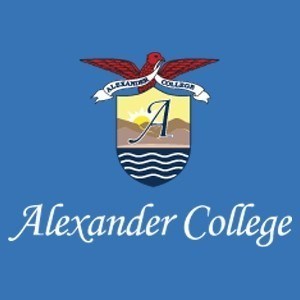The Bachelor of Information Systems (BIS) at Concordia University is a comprehensive undergraduate program designed to equip students with the essential knowledge and skills required to succeed in the rapidly evolving field of information technology. This program emphasizes the integration of business acumen with technical expertise, enabling graduates to develop, implement, and manage information systems that support organizational goals and improve operational efficiency. Throughout the course of study, students explore core topics such as programming, database management, systems analysis and design, enterprise architecture, cybersecurity, and project management. The curriculum is structured to foster critical thinking, problem-solving abilities, and effective communication skills, preparing students to address complex challenges in diverse organizational settings.
Students have the opportunity to undertake hands-on projects, internships, and co-op placements that provide practical experience and a real-world understanding of industry practices. The program also offers specializations and elective courses in emerging areas such as cloud computing, data analytics, and mobile application development, allowing students to tailor their education to their interests and career aspirations. Faculty members are experienced professionals and researchers dedicated to delivering high-quality instruction and mentorship. Upon graduation, students are well-positioned for careers in roles such as systems analyst, business analyst, IT consultant, project manager, and database administrator in various sectors including finance, healthcare, government, and technology. The Bachelor of Information Systems at Concordia University is committed to fostering innovation, ethical practices, and lifelong learning to prepare students for the dynamic landscape of information technology and digital transformation.
The Bachelor of Science in Information Systems at Concordia University offers a comprehensive curriculum designed to equip students with the essential skills and knowledge necessary to excel in the dynamic field of information technology and management. The program emphasizes a strong foundation in computer science, information technology, and business principles, preparing graduates to develop, implement, and manage innovative information systems that enhance organizational efficiency and competitiveness. Students will explore core areas such as software development, database management, networking, cybersecurity, data analysis, and systems integration, alongside courses in business strategy, project management, and organizational behavior. The curriculum integrates theoretical concepts with practical applications through hands-on projects, internships, and collaborative assignments, enabling students to gain real-world experience. Additionally, the program encourages the development of critical thinking, problem-solving, and effective communication skills—traits essential for leadership roles in technology-driven environments. Graduates of the program are prepared for careers in various sectors, including IT consulting, systems analysis, software development, cybersecurity, and data management. The program also provides a solid foundation for students interested in pursuing advanced studies or professional certifications in the field. With a dedicated faculty specialized in both academic research and industry practice, students benefit from mentorship and cutting-edge insights into emerging trends and technologies. The Bachelor of Science in Information Systems at Concordia University is committed to fostering innovation, ethical responsibility, and lifelong learning, ensuring graduates are well-prepared to contribute to and shape the future of information technology in a global context.
Program requirements for the Bachelor of Commerce in Information Systems at Concordia University include completing a minimum of 120 credits, which typically takes four years of full-time study. Students must fulfill both core and elective course requirements, including foundational courses in computer science, systems analysis and design, database management, programming, and business principles. The curriculum emphasizes developing technical skills such as programming in languages like Java or Python, understanding cybersecurity principles, and managing enterprise systems. In addition to technical coursework, students are required to take courses in business communication, professional practice, and ethics to prepare them for real-world applications. A capstone project or internship is also often required to give practical experience in the field. Students should maintain a minimum grade point average (GPA) as specified by the university, typically around 2.0 or higher, to remain in good academic standing. Admission to the program generally requires completion of secondary school education with prerequisites in mathematics and English. International students must provide proof of English language proficiency through tests such as IELTS or TOEFL. The program encourages participation in co-operative education opportunities to enhance employability upon graduation. Students are also expected to adhere to university academic policies and participate in seminars and workshops designed to update skills and knowledge continuously in the fast-evolving field of Information Systems.
The Financing studies for the Bachelor of Science in Information Systems program at Concordia University include a variety of financial support options designed to assist students in managing the costs associated with their education. The university offers a range of scholarships, bursaries, and financial aid programs to eligible students based on academic achievement, financial need, and other criteria. Prospective and current students are encouraged to explore merit-based scholarships such as the Concordia Presidential Scholarship, which recognizes outstanding academic performance, and need-based bursaries like the Financial Aid Bursary, aimed at supporting students facing financial challenges. Additionally, students may access government financial assistance programs, including student loans and grants provided by provincial and federal authorities, which can significantly offset tuition fees and living expenses. Most students finance their studies through a combination of personal savings, family support, scholarships, bursaries, and government aid. The university also participates in work-study programs that allow students to gain practical experience while earning income to support their studies. International students may have access to specific scholarships and funding opportunities tailored to their status, although these are often more competitive and limited in scope. Financial planning is recommended early, and students are advised to consult the university’s Office of Financial Aid and Awards for personalized guidance and updated information on available funding opportunities. Concordia University also provides timely information about various external funding sources and scholarship competitions relevant to students enrolled in the Information Systems program. Overall, while the costs associated with pursuing the degree are substantial, the university’s comprehensive financial support system is designed to make education accessible and affordable for qualified students.
The Bachelor of Science in Information Systems at Concordia University is designed to provide students with a comprehensive understanding of the fundamental principles and practices involved in managing and utilizing information technology within organizations. This program combines theoretical foundations with practical applications, preparing graduates for careers in various sectors including business, government, and non-profit organizations. The curriculum covers a wide range of topics such as programming, databases, systems analysis and design, network administration, cybersecurity, and enterprise systems. Students will also gain skills in project management, software development, and data analytics, equipping them to solve complex problems related to information systems. The program emphasizes experiential learning through hands-on projects, internships, and collaborations with industry partners. Concordia's state-of-the-art labs and facilities support this practice-oriented approach, ensuring that students acquire current technical skills aligned with industry standards. The faculty members are experienced professionals and researchers dedicated to delivering high-quality education and mentoring students in their academic and professional development. Graduates of this program often pursue roles such as systems analysts, IT consultants, software developers, database administrators, and project managers. The program also offers opportunities for further specialization through minors or graduate studies, fostering continuous learning and adaptation to the rapidly evolving technology landscape. Emphasizing ethical considerations and the social impact of technology, the curriculum also prepares students to consider privacy, security, and ethical issues in their work. With a strong foundation in both technical skills and business knowledge, graduates are well-positioned to contribute to digital transformation initiatives across diverse industries. Concordia University's location in Montreal, a hub for technology and innovation, provides additional opportunities for networking, internships, and industry engagement, giving students a competitive edge in the job market. The program is accredited by relevant educational bodies and maintains rigorous academic standards to ensure graduates meet employer expectations and succeed in dynamic technological environments.





